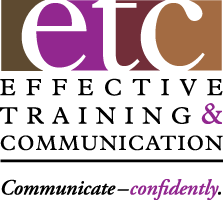Besides serving clients as a workplace communication consultant, trainer and executive coach, I’ve also delivered workshops on Time Management and Process Improvement over much of my career. I even include these topics in my work with the Goldman Sachs 10,000 Small Businesses Initiative. That’s why a reporter asked for my thoughts on improving office productivity. Here’s a summary.
- One effective way to improve overall office productivity is to make it everyone’s ongoing responsibility to continually look for ways to do what they do faster, cheaper, better or smarter. Incorporate this practice into the company culture and reward appropriately for both effort and results.
- For Process Mapping, identify major processes critical for the operation of the office/business and have each person involved in that process map it or list step by step how he or she does it. Share the maps in a group meeting, merge the various steps and create a composite best practice procedure for that process. Document it, create job aids for training new people on it and evaluate performance effectiveness and efficiency against the procedure.
- ‘You can’t manage what you don’t measure’, asserted management guru Peter Drucker years ago. So, consider time a rare and value resource and measure how you use it. Have each key manager log his or her time use in 15-minute increments over different days in different weeks. List incoming calls or emails separately. Then analyze the results.
- Consider an ‘Urgent/Important’ matrix where each task is evaluated according to how urgent and important it is. Low urgent/important tasks are potential for eliminating or delegating. High urgent/important tasks deserve more emphasis.
- Another method is to assign a high dollar value for each person’s time. Then, create three groups of tasks: 1. Those for which the person is paid too much – a high probability for dumping or delegating. 2. Those for which the person is paid fairly – keep doing them. 3. And most importantly, those tasks for which the person is not paid enough. These represent best and highest use, so more time and effort should be spent on them, which will be created as the result of delegating or dumping the lower value items.
- Also, stress being Effective first – doing the right things. Then, focus on being Efficient – doing those right things in the right way. We can learn from Peter Drucker here as well – ‘There is nothing quite so useless, as doing with great efficiency, something that should not be done at all.’
So, take some time out of your busy day to look for ways to improve productivity and time management. It will definitely time well spent.
Got any ideas on this topic to share? Send them in for all to enjoy.
